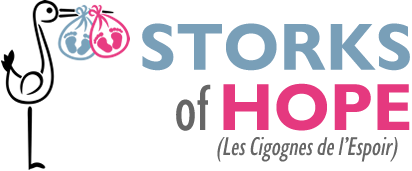Interview with Eva Heisndorf-Tessier: naturopath and heilpraktikerin
Good morning, Ms. Heinsdorf Teissier. Can you tell us about your career path?
I studied to be a Heilpraktiker in Germany, a country where natural medicine or naturopathy is recognized and regulated. The training lasts 3 years during which all the basics of anatomy, physiology and pathology are taught, as well as the different methods of natural care. The diploma is recognised by the German public health service.
What is the practical role of a naturopath?
The naturopath’s mission is to prevent disease, maintain health and optimise it through a healthy lifestyle. Naturopathy complements conventional medicine, but does not replace it. Three elements need to be considered: the body, the mind and the emotions.
What happens during the first meeting?
The first session begins with a health check questionnaire. Clients are asked about their expectations, personal and family health history, current treatments and diet, occupation, environment, leisure activities and emotional state.
Typically, what are the first problems to be solved?
Often there is poor nutrition, lack of physical exercise and poor stress management. The diet therefore needs to be changed and, sometimes nutritional supplements added. Generally, this change in lifestyle is gradual and sometimes requires support including techniques such as massage, sophrology, relaxation, and/or reflexology, depending on the training of the naturopath.
Can you tell me about the link between diet and fertility issues, in your opinion?
There is an increasing incidence of male and/or female infertility, and I would say that our lifestyle is partly to blame for this. We do not have a proper diet: instead of favouring organic foods rich in fruit and vegetables, and home-cooked dishes, we are leaning towards bad food such as «fast foods». We must encourage the consumption of seasonal fruit and vegetables, because they are fresh and of better quality, and prepare our own meals, instead of buying industrially prepared ready meals. This avoids additional exposure to endocrine disruptors. Other endocrine disruptors to be avoided include tobacco, alcohol, cleaning products and non-organic cosmetics. Stress also plays an important role in fertility.
How will naturopathy help with fertility problems?
Fertility can be boosted by changing habits, being aware of our exposure to different endocrine disruptors, and reducing our consumption of industrially manufactured products.
Dietary supplements can be added if necessary, including vitamin D. The population is often deficient in certain elements and a vitamin D deficiency may have an influence on fertility problems.
We can also treat fertility problems using herbal medicine, and gemmotherapy.
Stress management is also a key factor.
I also treat women with massage. The technique of massage was imported from the United States by a gynaecologist from London. This massage acts on all gynaecological problems and fertility. It helps the woman to better connect to her body and thus regain confidence in it. We also do visualisation work on the womb, where you visualise a baby growing well and feeling safe in the mother’s womb.
How many sessions are needed to see concrete results?
The number of sessions depends on the individual. For example, for massage, the recommended frequency is usually twice a month. To secure a positive outcome, it is critical to manage stress levels. I can also add reflexology sessions to help with this. All my advice and techniques can, also be adapted for the man. This increases the chances of the couple achieving their desire for a child.
What can massage technique bring to the IVF process?
As massage is based on lymphatic drainage, it helps with detoxification and prepares the body for the IVF process. The organs are also better prepared, for example by stimulating the thyroid and ovaries we can positively influence the hormonal system. The work of visualisation of the uterus allows a better implantation of a future baby and creates a positive state for the duration of the whole pregnancy.

